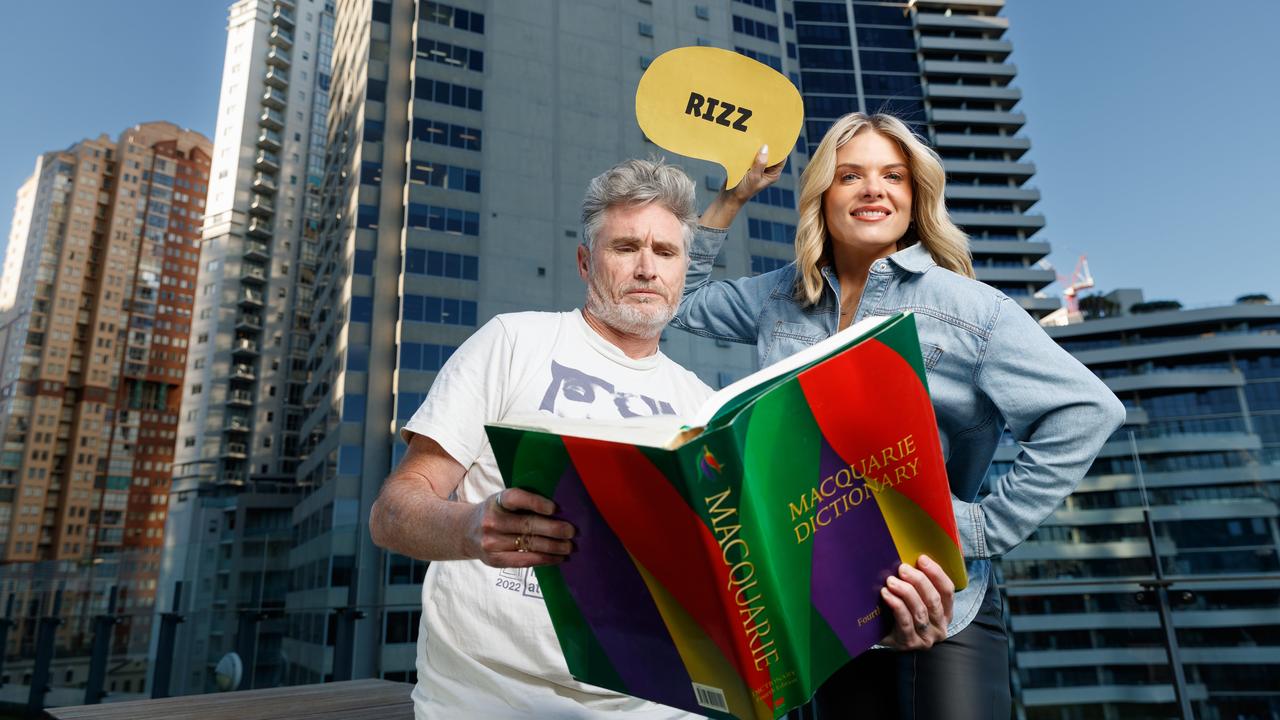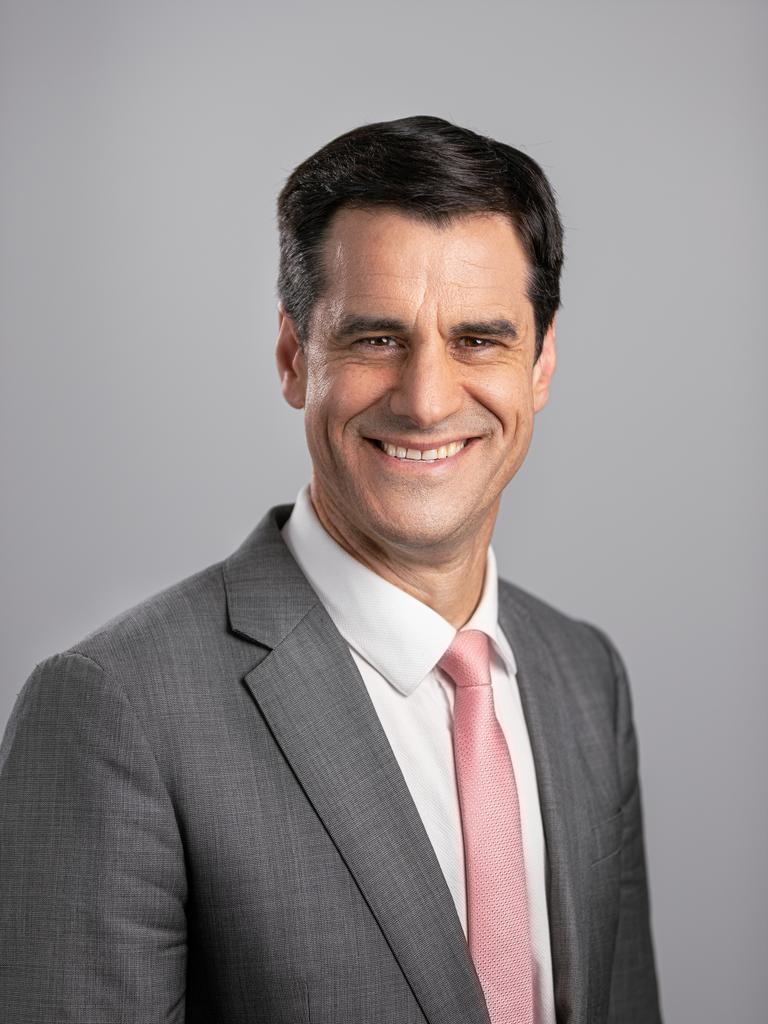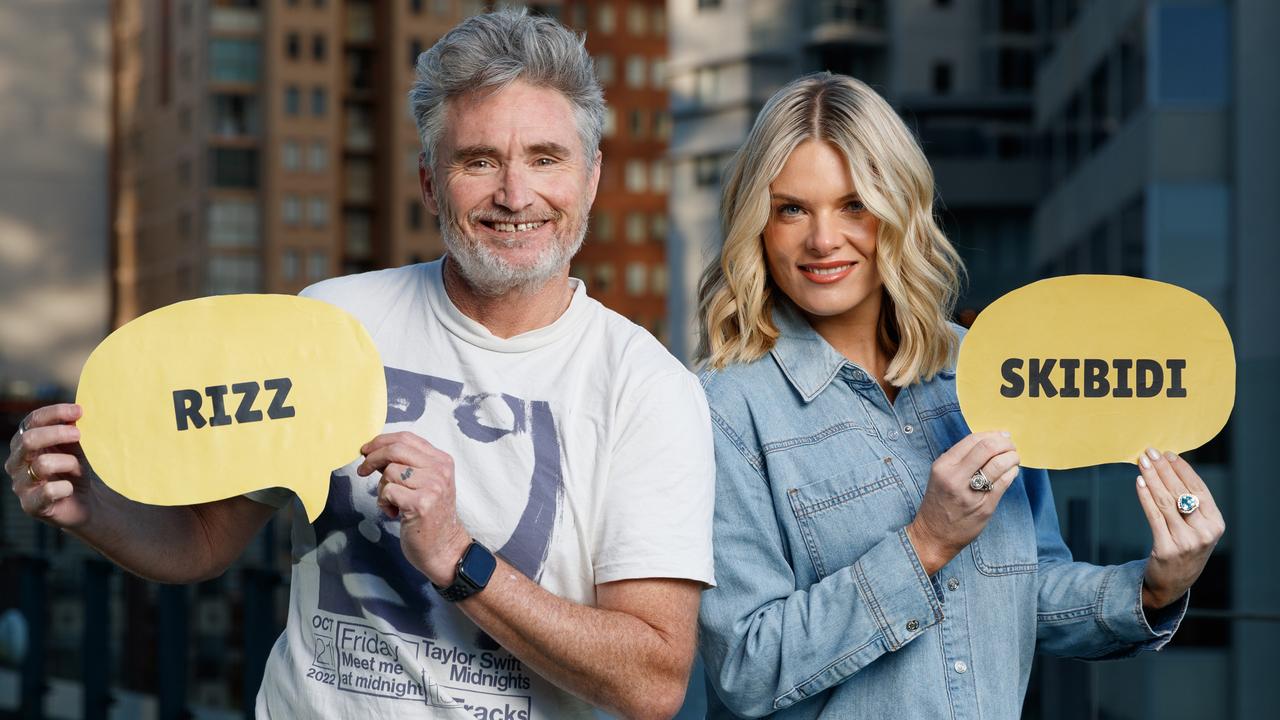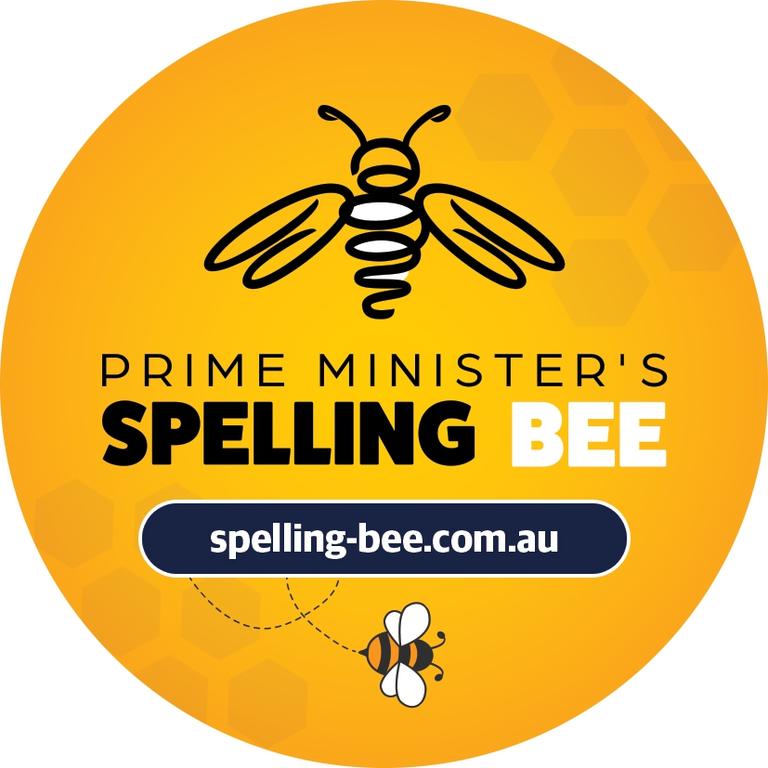Could Gen Alpha social media slang impact future literacy skills?
TikTok and YouTube slang has Gen Alpha speaking a ‘new language’ while parents and experts express concern about the state of literacy in Australia as social media reigns supreme

READING LEVEL: GREEN
Trends in social media and text slang* among Generation Alpha* have Australian parents concerned, an exclusive new Kids News survey has found.
The Fonto survey of 1002 Australian parents of kids aged 0-18 shows 84 per cent have noticed their kids’ slang increasing in recent years.
Radio presenter and media personality Erin Molan, also the proud mum to Eliza, six, said she worried that among her daughter’s generation, such slang trends could mean foundational literacy skills won’t be as strong as in the past.

“There was more emphasis on maths, English, geography … literacy, the most important thing, but I worry that the focus has shifted a little bit,” Molan said. “Maybe there’s less of a foundation there.”
Molan’s 2DayFM co-host, comedian Dave “Hughesy” Hughes, said Gen Alpha was now “coming up with their own language”.
Father to Rafferty, 15, Sadie, 13, and Tess, 11, Hughesy said his kids’ cohort* was taking it further than he could remember doing at their age.
“It’s a new language and anyone over the age of 30 can’t understand it,” he said. “All my son says is ‘skibidi toilet’ – and he says it about everything.”
Whether the current trend of TikTok and YouTube speak among Gen Alphas will negatively impact their long-term literacy skills remains to be seen.


The Australian Literacy Clinic director and spelling specialist at ACU’s Australian Centre for the Advancement of Literacy, Professor Saskia Kohnen said mainstream* words like “cool” dismayed parents back in the 1960s.
“Maybe this is something that connects us to our parents and grandparents and now it’s our time to worry,” she said.
Indeed, Kids News’ Fonto shows that 66 per cent of parents are concerned that such regular use of slang will harm children’s future prospects and Prof Kohnen agreed that strong foundational literacy was essential for improving outcomes.
“I am concerned about literacy in this country and I’m not alone,” Prof Kohnen said.
“Writing, even in this digital age, even in the time of TikTok, is probably more important than ever. It matters in the interview process. Sending in a resume* with misspellings is not looked upon favourably, blog posts or contributions on social media commentary are responded to differently when they’re misspelt – all of this matters. And all of this communication actually relies on foundational literacy skills: reading, spelling, grammar, punctuation.”
Social researcher Mark McCrindle said the impact of social media on Gen Alpha would likely be “significant”.
“The total screen time today, the saturation* of the absorption of content on social media platforms, is at a higher level than we’ve ever seen young people engage in popular culture* and screen-based entertainment,” he said. “We do need to ensure that there are limits … so that they do develop those broader skills.”
Molan said the Prime Minister’s Spelling Bee was “a brilliant idea.”
“Give kids things that motivate them and inspire them to be better,” she said.

WHERE DID THEY COME FROM?
Gen Alpha tweens and teens can help blitz the “brainrot” (digital slang for, er, digital slang) by understanding the origin of three of the top terms enjoying peak popularity.
SIGMA
In the real world, “sigma” sits well down the rungs as letter 18 of the Greek alphabet. But thanks to social media, “sigma” now rubs shoulders with “alpha”, which has held the No. 1 spot as the first letter of the Greek alphabet since the writing system was first developed in about 1000 BCE. For decades, “alpha” has been used to describe leaders, top dogs and strong personalities. Promoted out of alphabetic obscurity* by influencers unknown, “sigma” now means roughly the same.
SKIBIDI TOILET
Forbes profiled Skibidi Toilet creator, Georgia-based animator Alexey Gerasimov, in February, and the scale of his animated YouTube series’ success is staggering. YouTube views of toilets with singing human heads are in the hundreds of millions. TikTok videos – including knock-offs – have been viewed more than 20 billion times, according to the Forbes article. A genuine cultural phenomenon*, only Gen Alpha can flush this one away.
RIZZ
In a win for etymology*, “rizz” refers to the ability to charm another person. It makes perfect sense as a simple abbreviation of the word “charisma*”. Huzzah!
Registrations and the national school round OPEN NOW until Friday 23 August at spelling-bee.com.au
ABOUT THE BEE
● The Prime Minister’s Spelling Bee is a free, online competition for students in Years 3-8.
● Teachers can register students from Monday 22 July, when the national school round begins.
● The school round ends on Friday 23 August. State and territory finals will be held September 2 to September 6 and the national finals on September 11-12.
● Students compete at their school in three levels: Green level for Years 3-4, Orange level for Years 5-6 and Red level for Years 7-8.
● They get 30 randomly selected words from their competition level and have 25 seconds to type each answer. The students with the most correct words in the fastest time progress to finals.
● The national champion in each age group wins a trip to Canberra to meet the Prime Minister, an iPad, HarperCollins book pack and a $1000 voucher for their school.
Details: spelling-bee.com.au

POLL
GLOSSARY
- slang: informal words and expressions used by the same group or with the same interests
- literacy skills: being able to read, write and speak to understand, create and share meaning
- Generation Alpha: the current generation of young people born between 2010-2024
- cohort: a group of people with something in common
- mainstream: considered normal, accepted by most people
- resume: document stating a job applicant’s previous employment, experience and education
- saturation: a state of complete absorption in which nothing more can be added
- popular culture: music, TV, cinema, books, fashions that are widely enjoyed by many people
- obscurity: state of being unknown, unseen, unimportant
- cultural phenomenon: a widespread trend among a group that influences the behaviours or beliefs of its members
- etymology: the study of the origin and history of word
- charisma: a quality some people have that naturally makes them influential and attracts attention and admiration
EXTRA READING
PM e-n-c-o-u-r-a-g-e-s kids to BEE in it
Bee winners spell trouble for the PM
Top tips from Bee super spellers
QUICK QUIZ
- What percentage of surveyed parents have noticed kids’ slang increasing?
- What does comedian Dave Hughes’ son say about everything?
- What number is “sigma” in the Greek alphabet?
- What does Prof Kohnen say is even more important in the digital age of TikTok?
- What does social researcher Mark McCrindle say is at a higher level than ever seen before?
LISTEN TO THIS STORY
CLASSROOM ACTIVITIES
1. Blitz the brainrot!
Write down three ideas for things that adults can do that you think could help Gen Alpha kids improve their literacy skills.
Time: allow at least 15 minutes to complete this activity
Curriculum Links: English
2. Extension
Write a story that starts with this: “It started out like any other Monday morning – until I realised that I was suddenly speaking a completely different language to the adults. But it wasn’t just me, it was everyone under 18. And it wasn’t just a few different slang words … it was a totally different, new, language. “
Time: allow at least 30 minutes to complete this activity
Curriculum Links: English
VCOP ACTIVITY
Wow word recycle
There are plenty of wow words (ambitious pieces of vocabulary) being used in the article. Some are in the glossary, but there might be extra ones from the article that you think are exceptional as well.
Identify all the words in the article that you think are not common words, and particularly good choices for the writer to have chosen.
Select three words you have highlighted to recycle into your own sentences.
If any of the words you identified are not in the glossary, write up your own glossary for them.
Extension
Find a bland sentence from the article to up-level. Can you add more detail and description? Can you replace any base words with more specific synonyms?
Down-level for a younger audience. Find a sentence in the article that is high level. Now rewrite it for a younger audience so they can understand the words without using the glossary.


